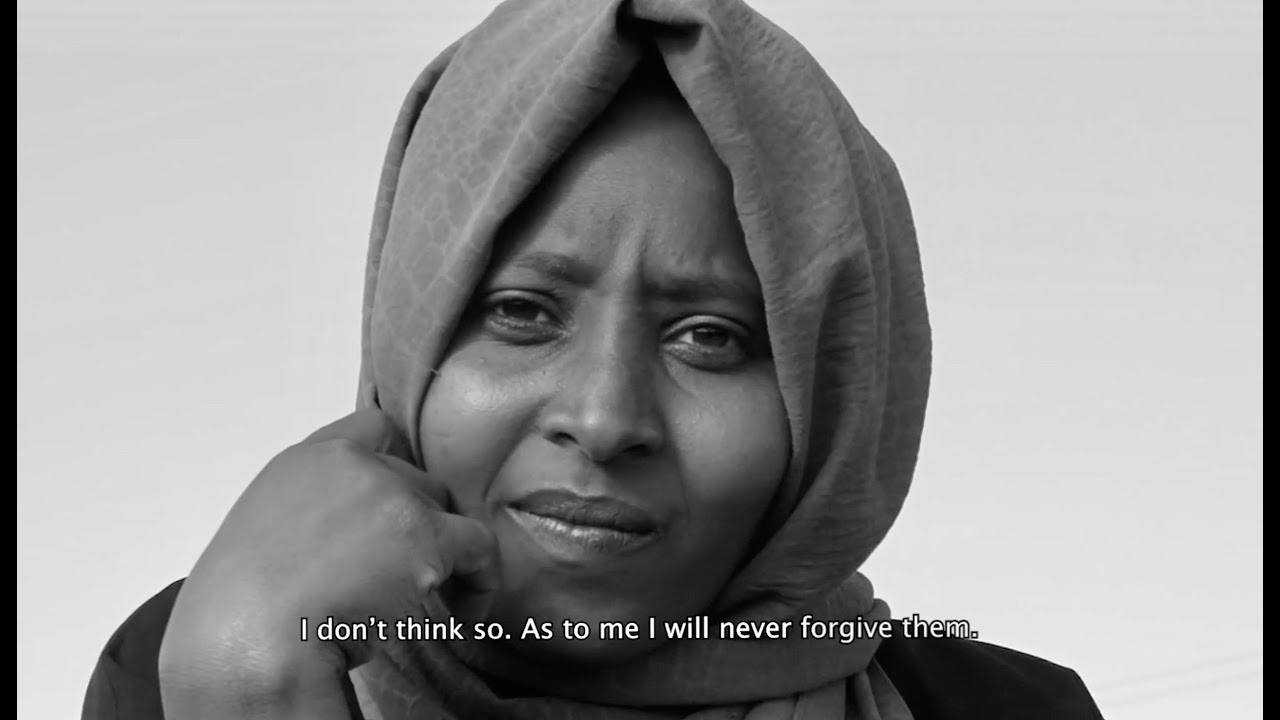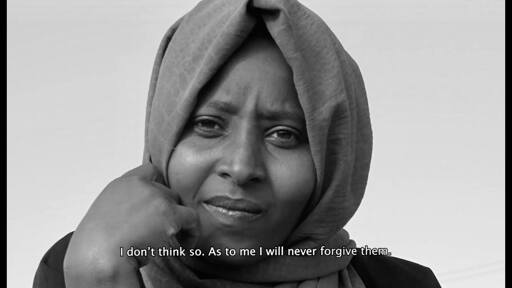
Youtube screenshot.
We are living in an age of autocrats — leaders who sit at varying points along a spectrum of repression and violence. Ethiopia’s Prime Minister Abiy Ahmed is among this malevolent list — not widely known internationally, yet nevertheless one of the most ruthless.
Hiding in the shadows of global affairs, Abiy is quietly presiding over a brutal campaign of ethnic persecution against the Amhara, the country’s largest ethnic group.
According to data compiled by the Amhara Association of America (AAA), at least 36,746 Amhara civilians have been the victim of violence since 2020. Of these, 18,530 were killed, 4,756 injured, and 1,766 subjected to sexual and gender-based violence. These cases — gathered by a small team working under extremely difficult conditions — represent only the tip of the iceberg.
The true number is almost certainly far higher. Prisoner of conscience Dr. Wondwossen Assefa, in his book Freedom March, points out that systematic killings of Amhara have taken place for decades, and may number in the millions.
Not only is it dangerous to be Amhara, but those identified as Orthodox Christian are also at risk. Attackers often equate Orthodox Christianity with Amhara ethnicity, meaning Amhara people of any religion — including Muslims — can be targeted. Members of the clergy, historically revered, and churches have also been attacked.
The hateful methodology is clear: the erasure of Amhara identity in all its forms — cultural, religious, and ethnic.
Bearing Witness
In June 2023, I travelled to Ethiopia to film a documentary exposing the systematic, state-sponsored violence against the Amhara people, which meets the legal definition of genocide — the Amhara genocide.
Sadly, little has changed since then; in many ways, the situation has become even more desperate. The killing of Amhara civilians is relentless, with some reports detailing drone attacks on civilians. Sexual violence, including rape, has become widespread. Displacement camps are overcrowded, schools are closed and access to food, water, and medical care is scarce.
Many children have been forced into child labour or “survival sex work” in makeshift camps without sanitation or electricity. They are traumatised, malnourished, and bear the lasting scars of prolonged exposure to violence.
Living in constant fear, large numbers of Amhara are reportedly attempting to flee the country. Lacking funds or passports, they face grave risk of exploitation, trafficking, or enslavement along migration routes in the region.
Homeless and heartbroken
During the visit, we met men, women, and children directly affected by the violence. All had been forcibly removed from their homes and were now ‘living’ in a displacement camp in the Amhara region.
The camp consisted of canvas tents and large industrial warehouses sheltering hundreds of people. The only sources of natural light inside these austere metal boxes came from the open doorway and narrow gaps at the top of the side walls.
At first, I thought these were simply storage units, but as my eyes adjusted to the dim light, I saw people among piles of clothing, worn mattresses, plastic chairs, and brightly coloured washing bowls. Some lay down, others sat cross-legged, chatting; women brewed tea, comforted babies, and washed clothes.
Conditions in the camp were unhygienic, crowded, and devoid of dignity. The children, of whom there were many, had no activities, no toys or books, and no school to attend. Their lives had been shattered by the vicious ethnic-based violence, carried out with impunity by government forces. Many will never fully recover.
Local NGOs were present, but this was not a UN-run camp staffed with humanitarian workers offering education and healthcare. It was a former business premises, requisitioned by the government to temporarily house Amhara communities made homeless — people displaced by the very same authorities now claiming to protect them.
With the support of the Amhara Association of America (AAA), We’re Still Breathing: Amhara Genocide in Ethiopia was produced and released at the end of 2023.
In the film, we meet a seventeen-year-old boy, whom we will call Anton. He has lost his right arm and sits emaciated in rags. Armed militia from the Oromo Liberation Army (OLA) — the Shene, as they are locally known — attacked his town in Oromia. The Amhara were identified by their Oromo neighbours — friends, relatives, people with whom they had shared their lives for decades — and slaughtered.
Anton was butchered and left for dead. Miraculously, he survived physically, but mentally he is crushed: hopeless, suicidal. His father suffered a nervous breakdown and deserted the family; his mother is in pieces, depressed and traumatised.
Anton’s shocking story, along with those of others featured in the film, reflects the experiences of hundreds of thousands of Amhara.
The violence continues unabated, with duplicitous, power-hungry politicians enabling ethnic barbarism, crushing lives too many to count — Anton’s and his family’s among them.
State terrorism
At first glance, the situation in Ethiopia appears complex — deliberately so, with multiple armed groups involved — but the human tragedy being perpetrated is not complicated. It is stark, devastating.
The courageous men and women we met leave little room for doubt. They speak with clarity and authority, their testimony untainted by politics or ideology. In them, we trust. They are clear: the federal government, led by Prime Minister Abiy Ahmed — himself an Oromo — is responsible for the violence against Amhara communities.
Three armed groups have been carrying out this campaign of hate and violence, with varying levels of cooperation: the Oromo Liberation Army (OLA), formerly designated a terrorist organisation; the Oromia Special Forces (OSF), regional paramilitary forces; and the Ethiopian National Defence Force (ENDF), the federal army.
But as Abiy grows ever more brazen, it is the ENDF — often working alongside the OSF — that is increasingly responsible for attacks. Emboldened by the disregard shown for International Humanitarian Law by powerful figures such as Trump, Netanyahu, and Putin, Abiy appears to believe he is above the law and can use the federal forces to commit atrocity after atrocity with total impunity.
Fano
The Amhara people have been persecuted for generations, but the current wave of violence dates broadly from April 2023, when the federal government disbanded the Amhara Special Forces (ASF) — the Amhara region’s paramilitary force.
In response to this deeply contested decision — widely considered by many to be unconstitutional — huge protests erupted across the Amhara region. Abiy Ahmed sent in the army, including tanks, to suppress the demonstrations, resulting in deaths and hundreds of arrests.
With the ASF officially dissolved, the Amhara had no designated regional force. Fano, a volunteer resistance group composed of community members and former ASF fighters, stepped into this vacuum, taking up arms to protect Amhara civilians from attacks by the ENDF and other armed groups.
Since then, Fano has expanded, taking on both a civil society and defensive role. Functioning as an unofficial regional administration, it supports the community in various ways — assisting displaced families, promoting education for children, and running local projects such as supplying farmers with fertiliser.
What detractors label an “armed insurgency” is, in reality, a resolute act of self-defence by a sparsely armed, diaspora-funded group that also functions as a community-led authority in the Amhara region.
The Amhara are one of dozens of ethnic groups in Ethiopia that for generations coexisted largely in harmony. Today, politicians and armed elites are sowing divisions, exploiting historic grievances to justify violence and consolidate power.
Ignored by the World
When massive protests brought Abiy Ahmed and his Prosperity Party to power in 2018, many hoped the country was finally moving toward democracy after decades of dictatorship.
That hope quickly evaporated. Abiy and his allies proved to be no different from his predecessor, Meles Zenawi, and the EPRDF — perhaps worse. Like Meles, Abiy is violent, narcissistic, and dishonest; obsessed with power and unconstrained by law or morality.
While the Amhara are being slaughtered, raped, and displaced, Abiy grins for the cameras, pointing proudly to his vanity projects in Addis Ababa, seemingly oblivious to the human lives he is destroying.
Let’s be clear: Prime Minister Abiy Ahmed is a dictator overseeing genocide. He is a criminal and, like Benjamin Netanyahu and his cohorts, should be investigated by the International Criminal Court (ICC) for crimes against humanity and genocide.
Yet, despite the scale of this atrocity, the world remains largely silent. Coverage in mainstream media is virtually nonexistent, and Western and African politicians, along with global bodies such as the United Nations and the African Union, are largely silent. The war in Sudan receives some attention — still more than the horrors unfolding in Ethiopia — and the same is true of Congo.
Imagine such state-sponsored violence taking place in Europe: there would be outrage – rightly so, and collective action. But in Africa — nothing. No interest from the so-called ‘International Community’, or global institutions. Why? Is it as crude as rabid racism — after all, these people are poor and Black — or is it the lingering colonial mindset that allows the world to turn a blind eye to the deaths, displacement, rape, and torture of an entire people?
Whatever the reason, it is unconscionable. Yet again, it exposes the hypocrisy and moral bankruptcy of Western governments.
The extraordinary men and women we met in the displacement camp — and the thousands like them — deserve justice, recognition, and the chance for their heartbreaking stories to be heard.
The post We’re Still Breathing: Amhara Genocide in Ethiopia appeared first on CounterPunch.org.
From CounterPunch.org via this RSS feed


